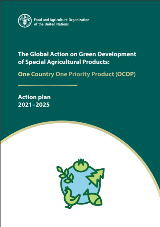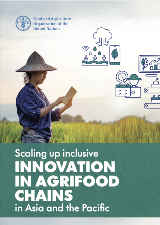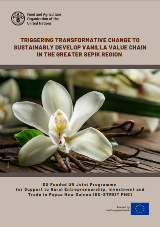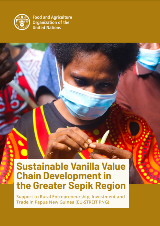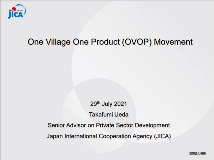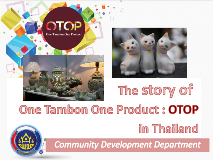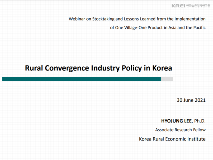
The International Capacity Building Workshop on Technology Transfer on Geographical Indications Environment& Sustainability (GIES) for OCOP Implementation in Asia and the Pacific
02/2024
The workshop conducted on 14-23 August in China, focused on the evaluation processes, data publishing, and repository infrastructures, emphasizing the importance of GIES for the One Country One Priority (OCOP) initiative. It included field visits to potential GIES case sites, discussions on remote sensing and satellite technology, and training workshops on GIES standards systems.

Republic of Korea: threat to food systems eased to increase farmers’ income
06/2023
Faced with stagnating farm income, the Republic of Korea is promoting the Sixth Industrialization Programme to strengthen the capacity of farmers and small agricultural corporations. In accordance with a framework of the Sixth Industrialization Programme, a three-tier approach is identified to help rural convergence industries. The process includes establishing Support Centres, Selection and Certification, and Policy Support Provision.

Indonesia: Farmers reap financial benefits after teaming up with the private sector and government to export locally produced bananas
06/2023
Banana Farmers in Tanggamus regency were struggling to increase their income due to low quality, limited production, dependent on local market and reliance of middlemen to take to secondary market. Through One Country One Priority Product, Indonesia strengthened and utilized public-private partnership for the development of support system focused on agronomy, technology and marketing.

Viet Nam’s One Commune One Product Programme
10/2021
A presentation during FAO RAP’s OVOP Stocktaking Webinar on Viet Nam’s OCOP program and lessons learnt.
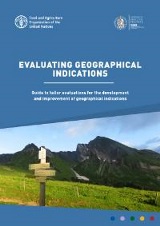
Evaluating geographical indications
09/2021
Geographical indications represent a powerful way to foster sustainable food systems through territorial approaches and market linkages, especially for small-scale actors. In this perspective, and following the FAO publication methodologies of the origin-linked virtuous circle, local actors need to well define their geographical indication (GI) system and, more specifically, the product specifications as well as monitor and evaluate...
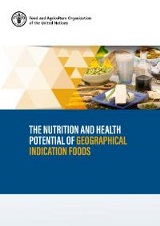
The nutrition and health potential of geographical indication foods
09/2021
Traditional foods, diets and food systems play an important role in people’s nutritional status. As the best products of traditional food systems, geographical indication (GI) foods have a great potential to contribute to healthy diets and curb non-communicable diseases
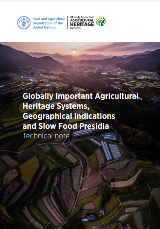
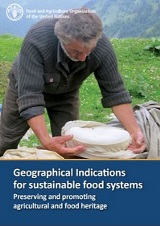
Geographical Indications for sustainable food systems
10/2019
A geographical indication (GI) is a label that applies to products with specific quality, reputation or other characteristics resulting from their geographical origin.

